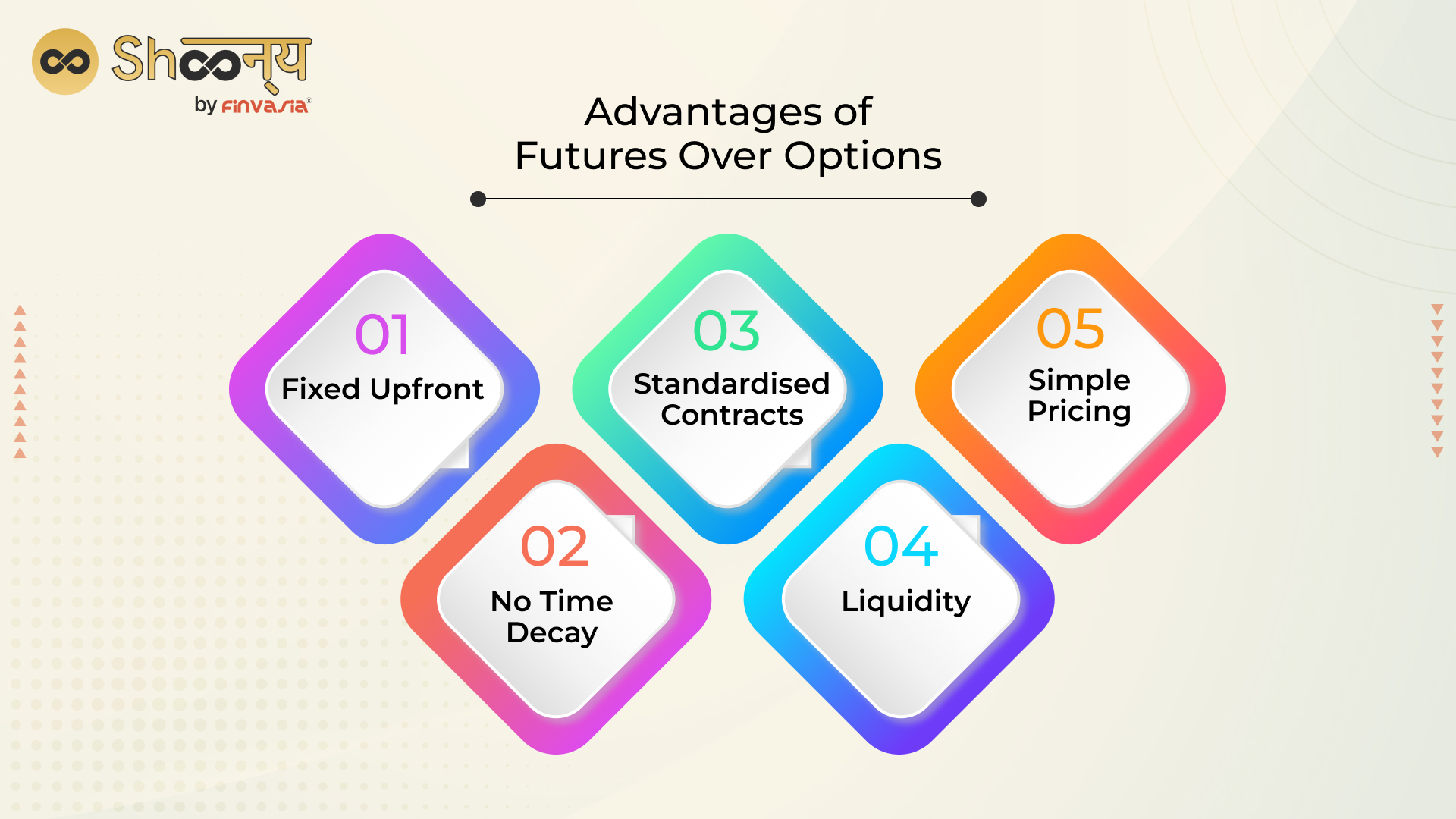Why are Futures Better than Options?

Futures and Options, or F&O trading, are a type of derivative that does not have its value and derives its worth from the underlying asset’s current market price. They are widely used to hedge against price fluctuations and are a common way to profit without committing all of one’s capital.
The parties to futures & options trading agree to buy or sell the underlying assets at a defined price and time.
However, in the case of options, the party is under no obligation to execute the trade if the market is not favorable, whereas futures binds the party to trade execution. Therefore, you may think that options have an advantage over futures, but after reading the following article, you may reconsider.
Advantages of Futures Over Options
1. Fixed upfront
Futures’ margin requirements are typically fixed and do not change frequently. You are well aware in advance of how much you must pay to go short or long on the underlying assets. Even if the asset’s price fluctuates and rises, you have an idea of the revised margin you must pay to cover the difference.
In contrast, the premium you pay for the trade privilege varies significantly in options. It is subject to market volatility. If market conditions cause the underlying asset price to be volatile, you will have to pay a higher premium, especially in the case of stock options.
2. No time decay
Options may appear worthless or unattractive as the expiration date approaches. Its value deteriorates significantly over time and is thus known as a contract prone to time decay. The profit you have expected at contract entry may be different during expiration. There is also the possibility that the price completely opposes your position. In such a situation, you will have to bear the premium loss by not placing the trade.
Futures are also subject to time decay, but not to the same extent as options.

3. Standardisation
Unlike options, futures are standardised contracts. The concerned exchange and clearing house ensure that the trade is executed smoothly.
Suppose you purchased a stock derivative with a bullish outlook while your friend has a bearish opinion on the same underlying assets. Nevertheless, you both agree to execute the trade on the specified future date.
The stock price rises as expected, and you are the winner, while your friend is on the losing side. However, if this entire contract is not standardised, your friend may withdraw, and even with a win, you will not be able to profit.
4. Liquidity
Future contract markets are liquid, particularly when the underlying asset is currency, commodities, or an index. The narrow bid-ask spreads ensure you enter and exit your position without hassle.
Options are not beneficial in terms of liquidity, especially if the price at expiration and strike price varies significantly. For example, suppose the strike price of HDFC shares is Rs 1650, but at the expiry, its price rises to Rs 1900. In this case, you will find it difficult to exit your position, and the reason is explained in the third subhead.
5. Simple pricing
Understanding future prices is simple. You can just add the spot price to the cost of carrying the underlying assets. Then, if the price fluctuates for any reason, the relevant exchange initiates arbitrage to keep the imbalance in check.
Options employ a more complex approach to determining the contract price, considering several factors such as volatility, contract expiration time, strike price, and interest-free rates.
Final Words
Futures are best if the price swing is in your favour. However, you should leverage your position based on risk tolerance rather than greed.
Download Shoonya on iOS or Android — your smart Futures & Options trading app for fast, seamless, and low-cost trades in India.








